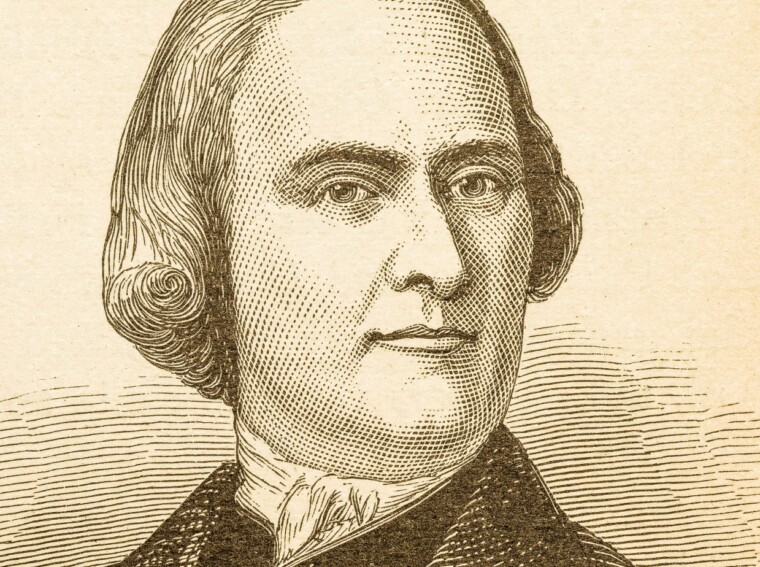As a history enthusiast, I have always been fascinated by the lives and contributions of influential figures in American history. Today, I am excited to delve into the backgrounds of two prominent figures: Samuel Adams and Patrick Henry. Both men played pivotal roles in the American Revolution, but their upbringings and experiences shaped them in unique ways. Join me as we explore the diverse backgrounds of these two influential patriots.
Samuel Adams, a key figure in the fight for American independence, was born and raised in Boston, Massachusetts. Growing up in a family of strong political convictions, Adams was exposed to the ideas of liberty and self-governance from an early age. His father was a successful brewer, and this entrepreneurial spirit would later influence Adams’ own pursuits. With a background rooted in politics and business, Adams would go on to become a tireless advocate for colonial rights and a driving force behind the American Revolution.
On the other side of the Atlantic, Patrick Henry emerged as a powerful orator and ardent supporter of American independence. Born in Hanover County, Virginia, Henry’s upbringing was quite different from that of Adams. Coming from a modest background, Henry had limited formal education but possessed an innate talent for public speaking. His experiences as a farmer and a storekeeper in rural Virginia shaped his perspective on freedom and individual rights. Henry’s fiery speeches, such as his famous “Give me liberty or give me death” speech, would inspire countless Americans to join the cause of independence.
Which Best Compares the Backgrounds of Samuel Adams and Patrick Henry?
Similarities
Samuel Adams and Patrick Henry, two influential figures in American history, had backgrounds that shared some similarities.
Familial Influence on Political Ideas
Both Adams and Henry were raised in families that played a significant role in shaping their political beliefs. Adams, born and brought up in Boston, Massachusetts, came from a family deeply committed to colonial rights. His father, Samuel Adams Sr., was an active participant in local politics and an advocate for American liberties. Growing up in such an environment exposed young Samuel Adams to political discussions and ideas from an early age. Similarly, Henry’s family in Virginia was involved in the agricultural community and concerned about the tensions between the colonies and the British Crown. These discussions within Henry’s household helped shape his understanding and passion for defending colonial rights.
Early Exposure to Political Ideas
Both Adams and Henry were exposed to political ideas and debates in their early years. Although neither had a formal education, they were well-versed in the issues surrounding colonial rights. Adams embraced the ideas of classical republican thought, which emphasized the importance of collective action and the common good. His exposure to this ideology from a young age gave him a solid foundation for his future role as a revolutionary leader. Similarly, Henry’s early exposure to political discussions and debates, coupled with his natural oratory skills, allowed him to become a persuasive advocate for colonial rights.

Differences
While Adams and Henry had some similarities in their backgrounds, there were also notable differences between them.
Regional Backgrounds
Adams hailed from the bustling city of Boston in Massachusetts, which was a hotbed of political activity and rebellion against British rule. Growing up in such a vibrant and politically charged environment, Adams was exposed to a variety of influential figures and movements that shaped his perspectives. On the other hand, Henry’s background in Virginia, a predominantly agricultural state, provided him with a different context. Virginia was known for its strong commitment to individual rights, and this influenced Henry’s belief in the need for personal liberty and freedom from British tyranny.
Educational Backgrounds
Another distinguishing factor was their educational backgrounds. While Adams attended Harvard University and received a formal education, Henry had limited formal schooling. However, this did not hinder Henry’s ability to have a profound impact on American history. Despite his lack of formal education, Henry’s natural talent for public speaking and his deep understanding of political principles made him a powerful and influential figure in the fight for colonial rights.
The backgrounds of Samuel Adams and Patrick Henry share similarities rooted in familial influences and early exposure to politics. However, the differences in their regional contexts and educational backgrounds shaped their perspectives and contributions to American history in unique ways.


